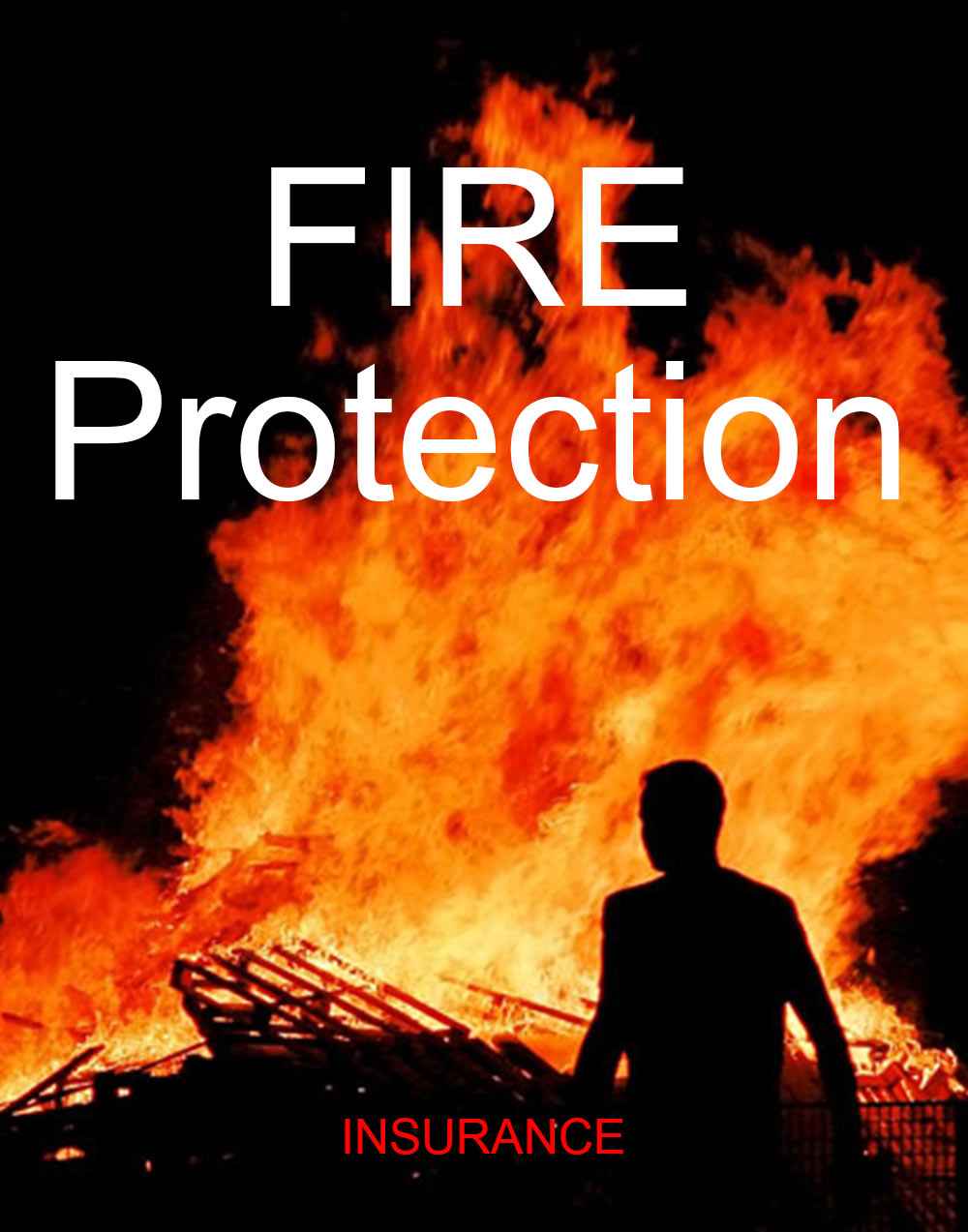Fire insurance is a contract between a policyholder and the insurance company in which the insurer agrees to compensate the insured in case of loss or damage happens to a particular property due to fire. The premium is also pre-decided and the insurer compensates for the loss up to the insured amount only.
Important characteristics of the fire insurance policy contract –
1. Insurable Interest in Property
It is necessary for the insured party to have an insurable interest in the property for which he/she wants to buy insurance. With insurable interest, we mean, the policyholder is benefited from the survival of the insured things and suffers a loss in case of its destruction. Remember, the insurable interest should exist both at the time of buying the policy and at the time of filing a claim.
2. Principle of Utmost Good Faith
A fire insurance contract is governed by the principle of utmost good faith that says it is necessary for the policyholder to disclose all vital points with regard to the subject matter of the insurance policy so that the insurer can have a proper calculation with regard to the risks involved. The policyholder should give information pertaining to the environment, construction of the house, the possibility of catching fire, etc. The insurance company has all rights to terminate the contract if it finds that the insured had not declared important points.
Similarly, it is necessary for the insurance company to give complete and honest detail about the Fire insurance policy. There should be no hidden clauses or charges.

Read More: Which Assets are Not Covered by The Fire Insurance Policies?
3. Contract of indemnity
The insurer will settle the claim only up to the insured limit. In case there is no loss, no claim is applicable.
4. Personal insurance contract
As fire insurance is a personal contract, the policyholder is involved with the property. As a result, it is necessary that the insurance company should have complete knowledge about the behavior of the policyholder. Moreover, the policyholder can’t transfer the insurance policy without the permission of the insurer. In case, the insured transfers the possession of goods to a third party, the insurer has all rights to terminate the insurance contract.
5. Personal right
The person whose name is mentioned in the fire insurance contract as the policyholder is eligible to receive the insured amount in case of any loss or damage.
6. Direct loss due to fire
As it is fire insurance, the fire should be the direct and immediate cause of the loss or damage. The direct losses would include instances where the accidental fire directly damages the tangible property and contents in the building. Direct losses of fire may also include the damages sustained to the contents of the building while spraying of water by the firefighters to extinguish the fire.
7. Description of property
It is an important part of the insurance contract, which says that the insured has to mention the location of the property in the policy document. Moreover, at the time of claim, the insurer will settle the claim only when the accident happened at the insured place. In the case of any change in the location, it is necessary to inform the insurance company.
Knowing the above characteristics of the fire insurance policy contract, you would be able to properly utilize it during an accidental fire.
Read More: How to file a claim under Fire Insurance?
Case Studies on Fire Insurance Policy :
Case 1. Rejection of claim in Fire Insurance
Mr. Jayant Sinha bought a fire insurance policy to insure his goods worth Rs 50 lakhs. Last month, a fire erupted at his place and engulfed goods worth Rs 20 lakhs. The insured reported a loss on account of the fire to the insurance company. However, upon inspection, the insurer found that the address where the fire had occurred was different than the address mentioned in the insurance policy document. The insurer turned down the claim because of the change in the location which the policyholder had not communicated to the insurance company.
Case 2. Cancellation of Fire Insurance Policy
Mr. Ram Prakash is a cloth merchant who owns five mills in Surat and Pune. Last year, he bought a fire insurance policy for all its mills. A few weeks ago, Ram Prakash shut down its business in one of its mills, Prakash Mill, situated in Pune. It means, Ram Prakash has also lost insurable interest in Prakash Mill and he should inform his fire insurance company who will either cancel his fire insurance policy or change the address mentioned in the policy document, in case he buys another mill and wants to ensure it. In this case, the person who has bought the mill from Ram Prakash should buy the fire insurance policy.
FAQ
Q) What are the main characteristics of fire insurance?
A) Fire insurance primarily covers losses due to fire. Its key characteristics include coverage for property damage, replacement costs, and sometimes additional living expenses. Policies often specify the types of fire incidents covered, such as accidental fires, electrical faults, and natural events like wildfires.
Q) Does fire insurance cover all types of fires?
A) Fire insurance typically covers accidental fires and those resulting from specific events like electrical issues or lightning. However, it may exclude intentional fires, such as arson, or fires caused by negligence, so it’s crucial to review the policy details.
Q) How are premiums determined in fire insurance policies?
A) Premiums for fire insurance are calculated based on factors like the property’s location, construction materials, proximity to fire services, and the value of the property and contents. Higher-risk areas and older buildings generally have higher premiums.
Q) What is the process for filing a fire insurance claim?
A) To file a claim, notify your insurer immediately after the incident. Provide documentation, including photos and a list of damaged items. The insurer will send an adjuster to assess the damage and determine the claim amount based on the policy coverage.
Q) Can fire insurance policies cover additional expenses beyond property damage?
A) Yes, many fire insurance policies include coverage for additional living expenses if the insured property is uninhabitable. This can cover the cost of temporary housing, meals, and other necessary expenses incurred while the home is being repaired.
About The Author
Shivani
MBA Insurance and Risk
She has a passion for property insurance and a wealth of experience in the field, Shivani has been a valuable contributor to SecureNow for the past six years. As a seasoned writer, they specialize in crafting insightful articles and engaging blogs that educate and inform readers about the intricacies of property insurance. She brings a unique blend of expertise and practical knowledge to their writing, drawing from her extensive background in the insurance industry. Having worked in various capacities within the sector, she deeply understands the challenges and opportunities facing property owners and insurers alike.




